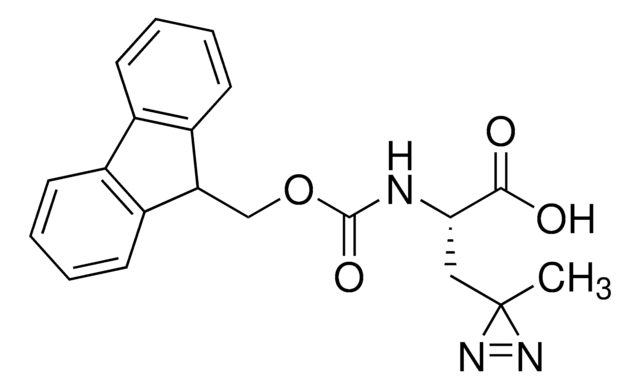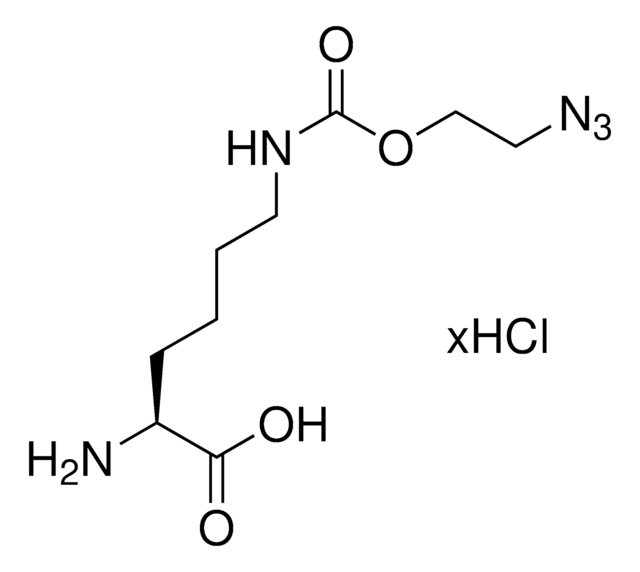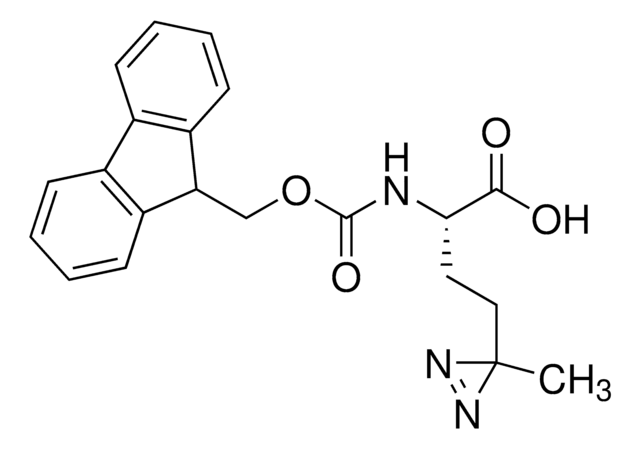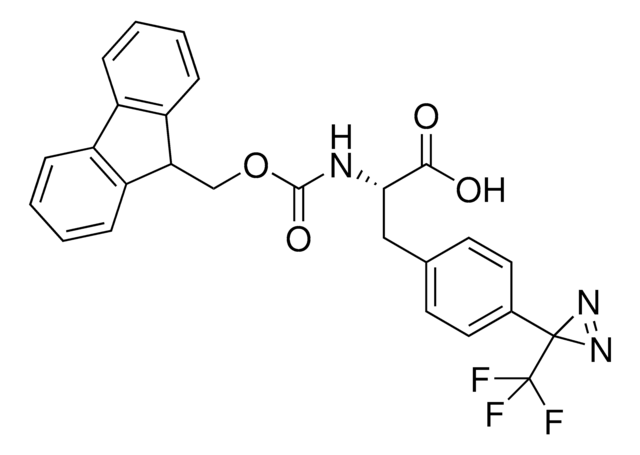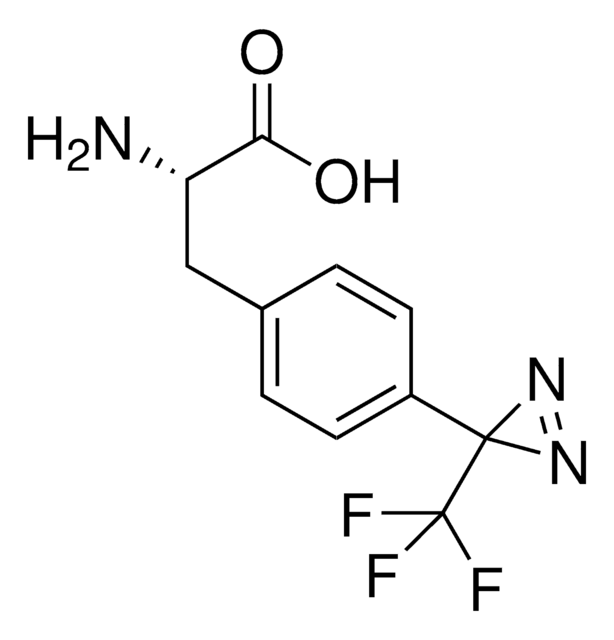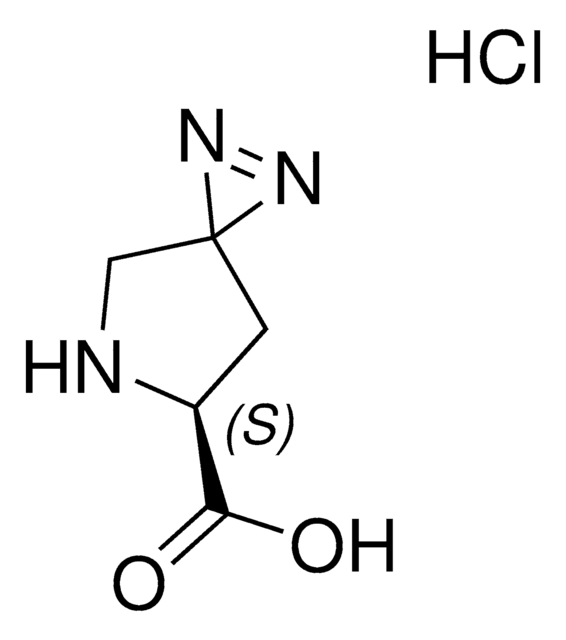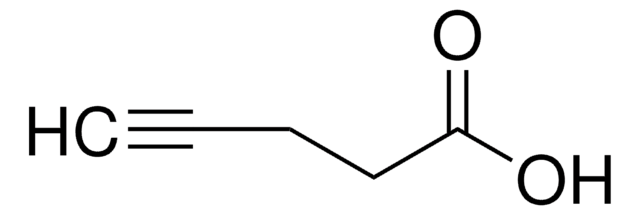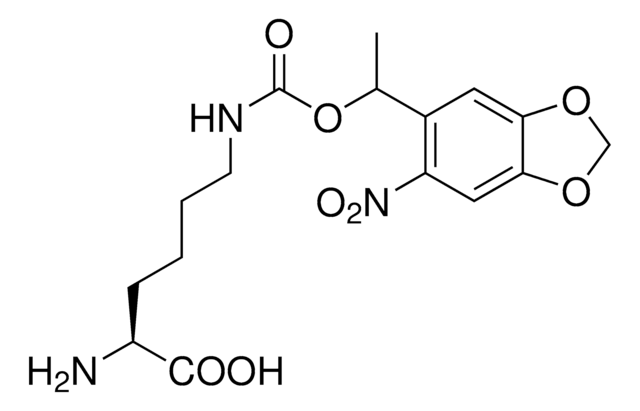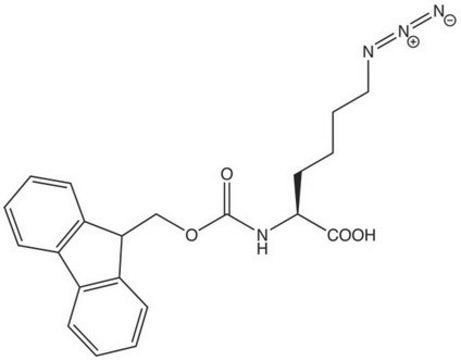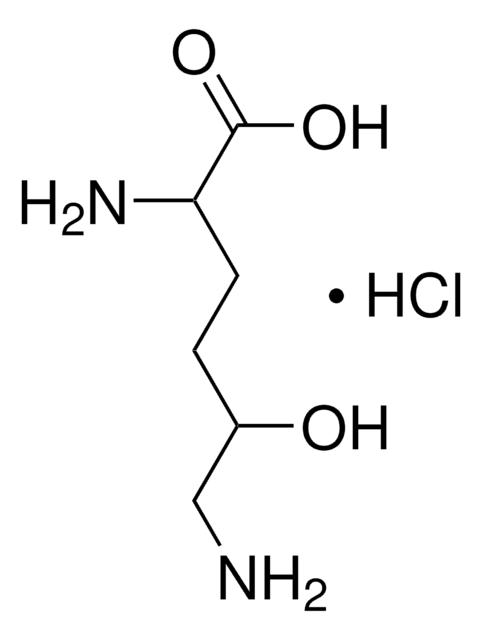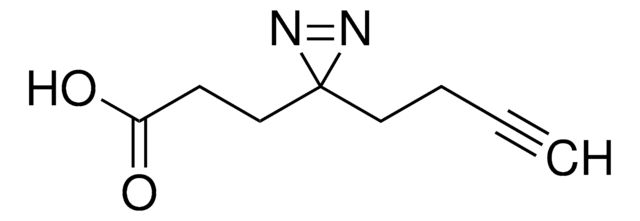907251
H-L-Photo-lysine HCl
≥98%
Synonym(s):
(S)-2-Amino-6-((2-(3-methyl-3H-diazirin-3-yl)ethoxy)carbonylamino)hexanoic acid hydrochloride, (S)-2-Amino-6-((2-(3H-diazirin-3-yl)propoxy)carbonylamino)hexanoic acid hydrochloride, 3′-Azibutyl-N-carbamoyl-lysine hydrochloride, Abk, Diazirine amino acid, Photo-Lys, Photo-crosslinking amino acid, Photoprobe building block
About This Item
Recommended Products
assay
≥98%
form
powder
reaction suitability
reaction type: solution phase peptide synthesis
availability
available only in USA
application(s)
peptide synthesis
storage temp.
−20°C
InChI
1S/C11H20N4O4/c1-11(14-15-11)5-7-19-10(18)13-6-3-2-4-8(12)9(16)17/h8H,2-7,12H2,1H3,(H,13,18)(H,16,17)/t8-/m0/s1
InChI key
LUCMNTLJAFTFDU-QMMMGPOBSA-N
Related Categories
Application
Product can be used with our line of photoreactors: Including Penn PhD (Z744035) & SynLED 2.0 (Z744080)
Other Notes
Genetically Encoded 2-Aryl-5-carboxytetrazoles for Site-Selective Protein Photo-Cross-Linking</A
Genetic code expansion for multiprotein complex engineering
Efficient viral delivery system for unnatural amino acid mutagenesis in mammalian cells
Probing Protein-Protein Interactions with a Genetically Encoded Photo-crosslinking Amino Acid
Fishing for Drug Targets: A Focus on Diazirine Photoaffinity Probe Synthesis
Photo-affinity labeling (PAL) in chemical proteomics: a handy tool to investigate protein-protein interactions (PPIs)
related product
signalword
Danger
hcodes
Hazard Classifications
Self-react. C
Storage Class
5.2 - Organic peroxides and self-reacting hazardous materials
wgk_germany
WGK 3
flash_point_f
Not applicable
flash_point_c
Not applicable
Certificates of Analysis (COA)
Search for Certificates of Analysis (COA) by entering the products Lot/Batch Number. Lot and Batch Numbers can be found on a product’s label following the words ‘Lot’ or ‘Batch’.
Already Own This Product?
Find documentation for the products that you have recently purchased in the Document Library.
Customers Also Viewed
Our team of scientists has experience in all areas of research including Life Science, Material Science, Chemical Synthesis, Chromatography, Analytical and many others.
Contact Technical Service